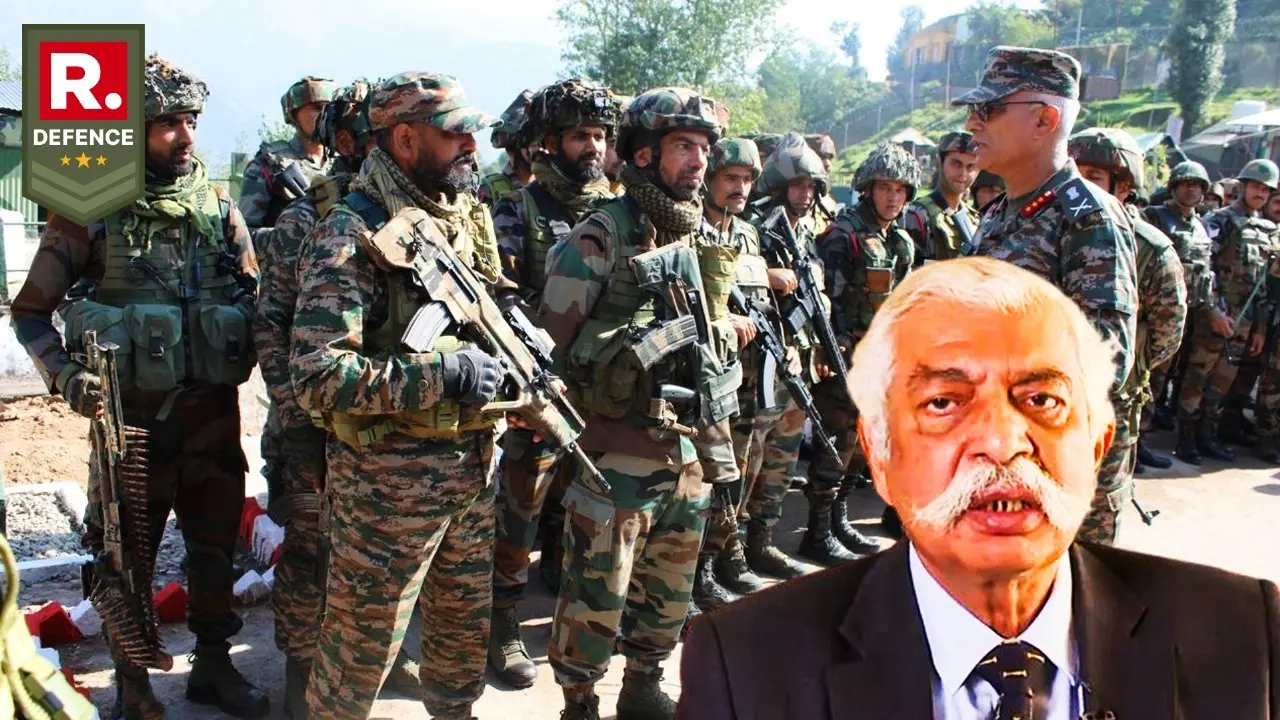Updated 22 April 2025 at 19:57 IST
Gen GD Bakshi On Pahalgam Terror Attack: India Must Identify and Kill Them, It Is Time to Do a Balakot
Major General GD Bakshi linked the masked attackers’ brutal targeting of tourists to a larger strategy aimed at derailing economic recovery .
- Defence News
- 4 min read

New Delhi, India - The recent terror attack in Pahalgam, which claimed two civilian lives and injured 20 others, has drawn a sharp and uncompromising response from Maj Gen (Retd) GD Bakshi. Describing the attack as a “very serious and unacceptable provocation by Pakistan ,” the decorated veteran minced no words in demanding swift and lethal retaliation. “It is time to do another Balakot,” he declared, urging the Indian state to abandon its reactive stance and adopt a proactive, retaliatory doctrine.
Maj Gen Bakshi underscored the strategic significance of the targeted region, stating, “Pahalgam and Dras are the two mounting bases for the Amarnath Yatra…this is a dastardly attack on Indian tourists.” Emotionally moved, he referenced a widow mourning beside her husband’s body, saying, “My heart bleeds when I see this poor girl crying.” According to him, such repeated tragedies point to systemic gaps that Pakistan’s ISI has learned to exploit effectively.
ISI Exploiting Troop Gaps; Tourism Economy Under Direct Assault
General Bakshi noted that operational gaps in Jammu and Kashmir, resulting from troop reallocations and downsizing during COVID-19, were leveraged by Pakistan-based terror outfits. “There were gaps in Reasi, Rajouri, Kishtwar, Doda, Badarwa... Pakistan exploited that by stepping up terrorist activities south of Pir Panjal,” he said. Now, he warns, Pakistan is directly targeting the Kashmir Valley, not just to spread terror but to destabilize the tourism economy that is key to Jammu and Kashmir’s post-Article 370 recovery.
Referring to the masked attackers—some dressed as policemen—who reportedly asked for the victims' religion before opening fire, the General assured, “They will be taken care of.” He praised the swift response of the Indian Army, police, and paramilitary forces. “You could see the boys on the run, helicopters pressed into service… drones tracking them,” he remarked, expressing confidence that the culprits would be neutralized within 72 hours.
Advertisement
Ceasefire Questioned; Calls For Cross-border Fire, Surgical Strikes Gain Volume
In a sharp critique of India's current operational posture, Gen Bakshi asked, “Why is that stupid ceasefire still in place?” Arguing that continued restraint along the Line of Control is facilitating infiltration during the summer season, he proposed offensive action.
“Why aren’t our medium guns firing, engaging their terror training camps?” he asked rhetorically.
As per Maj Gen Bakshi, the current strategy is enabling rather than deterring future strikes. He went on to add, “We need to stop being purely reactive. It’s time to go beyond that. It is time to do a Uri-style special forces strike.” Drawing a parallel with previous military responses such as the 2016 surgical strikes and the 2019 Balakot airstrikes, Maj Gen Bakshi asserted that Pakistan must be made to pay a price—militarily and psychologically—for each act of terror it sponsors.
Advertisement
‘Time For Action, Not Loud Talk,’ Says Bakshi As He Denounces Pakistan’s Terror Revival
The Major General also linked Pakistan’s resurgence in proxy warfare to its broader destabilizing efforts in Punjab and even Bangladesh. “Pakistan is a sinking economy… But look at them trying to revive terrorism in J&K and Punjab,” he said. He castigated the Indian establishment’s continued reliance on global diplomatic image management. “I don’t see what we are trying to prove to the world. How patient we are?”

His final message was unequivocal and chilling in its clarity: “It’s not time for loud talk. It’s time for action.” With multiple provocations stacking up—from cross-border infiltration to civilian casualties—Maj Gen Bakshi’s comments represent a rising chorus of voices advocating for a hardline posture and calibrated kinetic retaliation to restore deterrence.
Watch- ‘Hindus Were Targeted Indiscriminately’: What Happened With Tourists in Pahalgam | Ground Report
Published By : Yuvraj Tyagi
Published On: 22 April 2025 at 19:55 IST
